The conversation of love
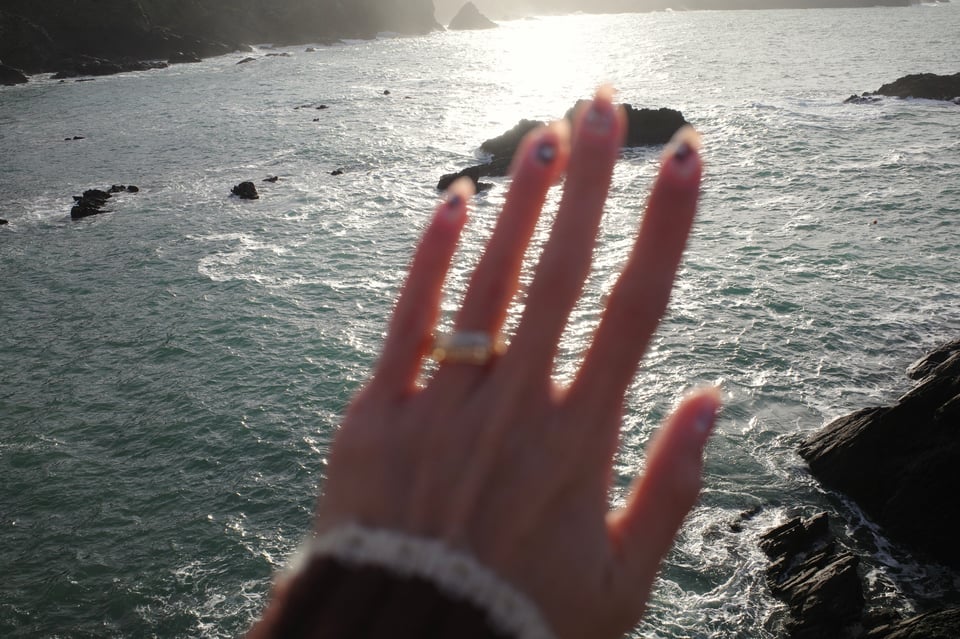
When the poet Nikki Giovanni died in December, clips re-emerged online of a conversation between her and the writer James Baldwin that aired on PBS in 1971.
Giovanni was only 28 at the time, facing down Baldwin who at 46, was already a titan of American intellectual and moral life. For hours in a spare studio room in London, with cigarette smoke swirling, the two discuss race, religion, gender. The direction of the civil rights movement. The possibility of freedom in an oppressive society. The value of morality. They disagree and argue; they listen and respond. They joust, spar, dance … They do what is only possible with two, and not one, which is to converse. When later a transcript is released, it is titled “A Dialogue.”
NG: “For me, the question has always been power. For you all, the question has been morals. I never wanted to be the most moral person in the world. I would sell my soul, do you know what I mean? What does it profit the man to gain the world and lose his soul? The world. You take the soul. Y’all can have Jesus. Give me the world.”
(You can watch the two hour-long edited segments that aired on TV at BaldwinBibliography.Com, a free resource curated by a Baldwin fan who believes in the public good.)
Ruairí introduced me to Baldwin. For me, watching the clips again recently was a reminder of what is possible when two people become, as Iris Murdoch says, “mutual objects of attention.”
Chat is life. And truly good chat, in my experience, is possible only among those bound by mutual admiration. When you respect the person across from you and palpably feel they respect you in return, then you can begin to have fun. You can relish disagreement. You can challenge and be challenged. You can joust, spar, dance… You can learn and get better. On the rare occasion you’re evenly-matched (what heaven), you can keep going. On and on, an endless game.
At the bar, on the balmy walk home, while you’re making breakfast the next morning, during breaks in the workday, again at dinner, as you wash the dishes, in the final, blurry moments before sleep – play on. When it’s good and when it lasts, you can become two balls of kinetic energy, knocking and tugging at the other into a bigger, more vibrant existence. You can make each another more alive.
What you didn’t see before – now, you see.
To me, this is no symptom of love. It’s the thing itself.
**
In the summer after college, I moved into a narrow townhouse in Capitol Hill with my friend Lindsay. We cautiously agreed to lease the third room to another journalist we knew and most of you are familiar with the story of what happened next. Ruairí and I grew close primarily through chat. We talked for hours, late into the night after work, at a long wooden dinner table that I think is still in that house or otherwise by a pair of white couches next to a fireplace.
For a while we were both gentle and extremely polite. But one night in the fall of 2019, Ruairí, who is allergic to lying, told me quite plainly I was squandering my happiness. I still remember how the shock felt cold on my skin and how I grabbed a pillow closer to myself to try to fathom what this otherwise nice man had just said to my face. I also remember disagreeing entirely. Vehemently. From this point on, obviously, we were cooking with gas. By the end of the year, I knew I loved him.
It is nice and arguably necessary to be liked and cared for. But to be seen, to be known is intoxication. While it’s initially uncomfortable, what it allows in the long-term is the freedom to be yourself and to like yourself and to move through the world without ever feeling truly alone. What it allows, as well, is honest-to-god emotion: anger, delight, gratitude. Real laugh-out-loud funniness. Hurt that’s worthwhile.
When I think through how to describe our last five years together, there is a lot of adventure and capital C Change. We have already lived through together a pandemic, an insurrection, a migration, job changes, weddings, births. But what is most precious to me, what I believe I will savor at the end of my life, is the several dozen times a day, mundane and unwitnessed, when either of us sticks our head around the corner to the other and goes did you see… you won’t believe… can I ask you… do you want to know… can I tell you…
Wherever it is I go, whatever it is he is absorbed by, we return like children to our conversation. Our endless play.
“How long is the conversation of love? Nothing less than everlasting would be enough. Not all loves do endure, but it is essential to love that we believe it will, that we want it to, because an orientation toward eternity is part and parcel of what it is to have faith in the exhaustibility of another person.”
- Becca Rothfeld, “All things are too small”
**
On the last days of December, Ruairí and I drove to Dingle, a small town on the tip of the western peninsula of Ireland that is encased in a kind of silly, snowglobe-like perfection. A place we both adore.
The week leading up to this point had been joyous, filled with many cheeky pints and random moments of serendipity that went a long way with two romantics: In Dublin, Omar Apollo (a Ruairí fav) was playing in the cafe when we got hot choco; in Cork, we were reading the paper in a bar when we spotted a man, Roger, who we spoke to at that same bar a year and a half ago; also in Cork, we had a staggeringly beautiful meal at a restaurant that we learned was consecrated by Cillian Murphy whose wife used to waitress there.
We’d been to Dingle together twice before, but both in the summer. This time, on New Year’s Eve, it was pouring rain. We were drying off in the Airbnb about midday when the rain eased off slightly. Ruairí hustled me into the car and drove us to edge of Dingle bay. In lashing winds and next to a 19th century stone fort named – I could not love this more – Hussey’s Folly, my intelligent and kind and principled Ruairí asked me to marry him. I said yes :)
We watched the fireworks over the bay that night, then packed into a pub where strangers bought us drinks and danced merrily to Irish music. A few moments before midnight, everyone in Dingle poured out into the wet streets and counted down into the new year. We ran home in the rain after this, holding hands and laughing as a marching band inexplicably passed by us.
When we woke late the next morning, New Year’s Day, the skies were bright blue over Dingle. We went on a drive along the coast. Light covered everything, the puddles, pastures and wide, endless sea. Out and out, it spread like syrup. As we turned one of the sharp corners into an open vista, with Ruairí humming softly at the wheel to some song, I thought to myself: I can’t believe this is my life.
And then, the response: It is. It is!
**
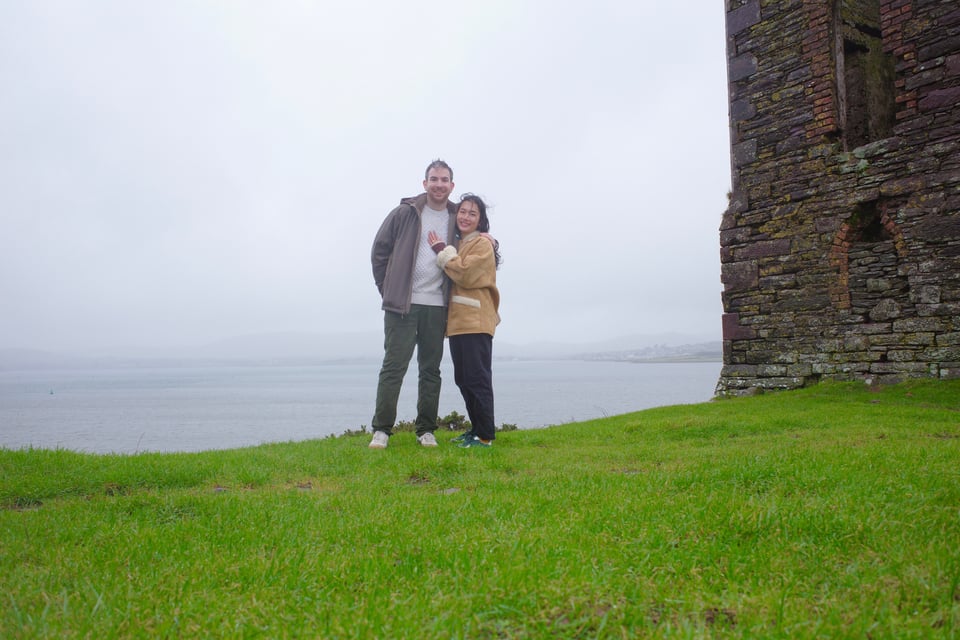
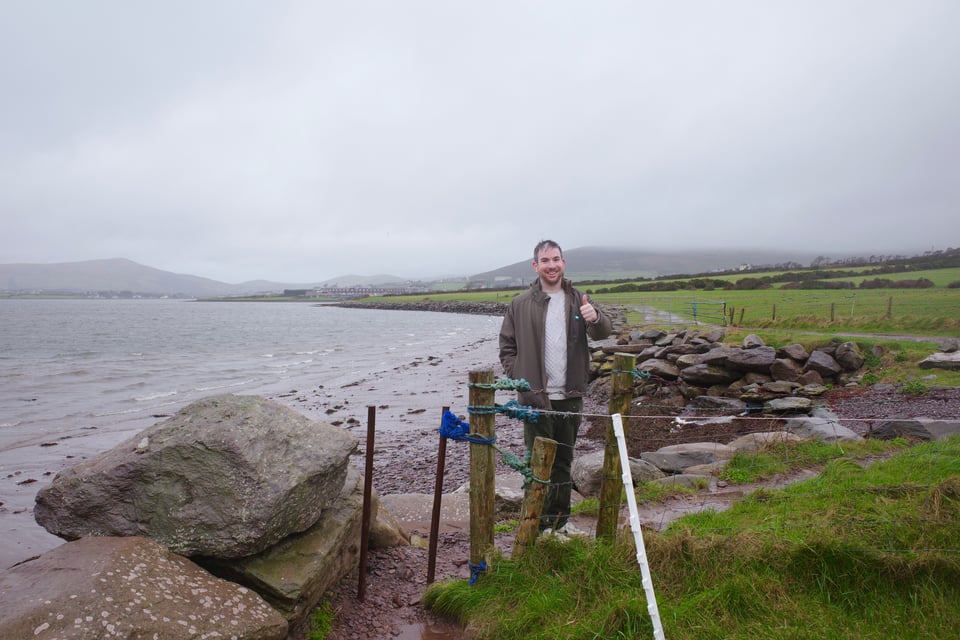
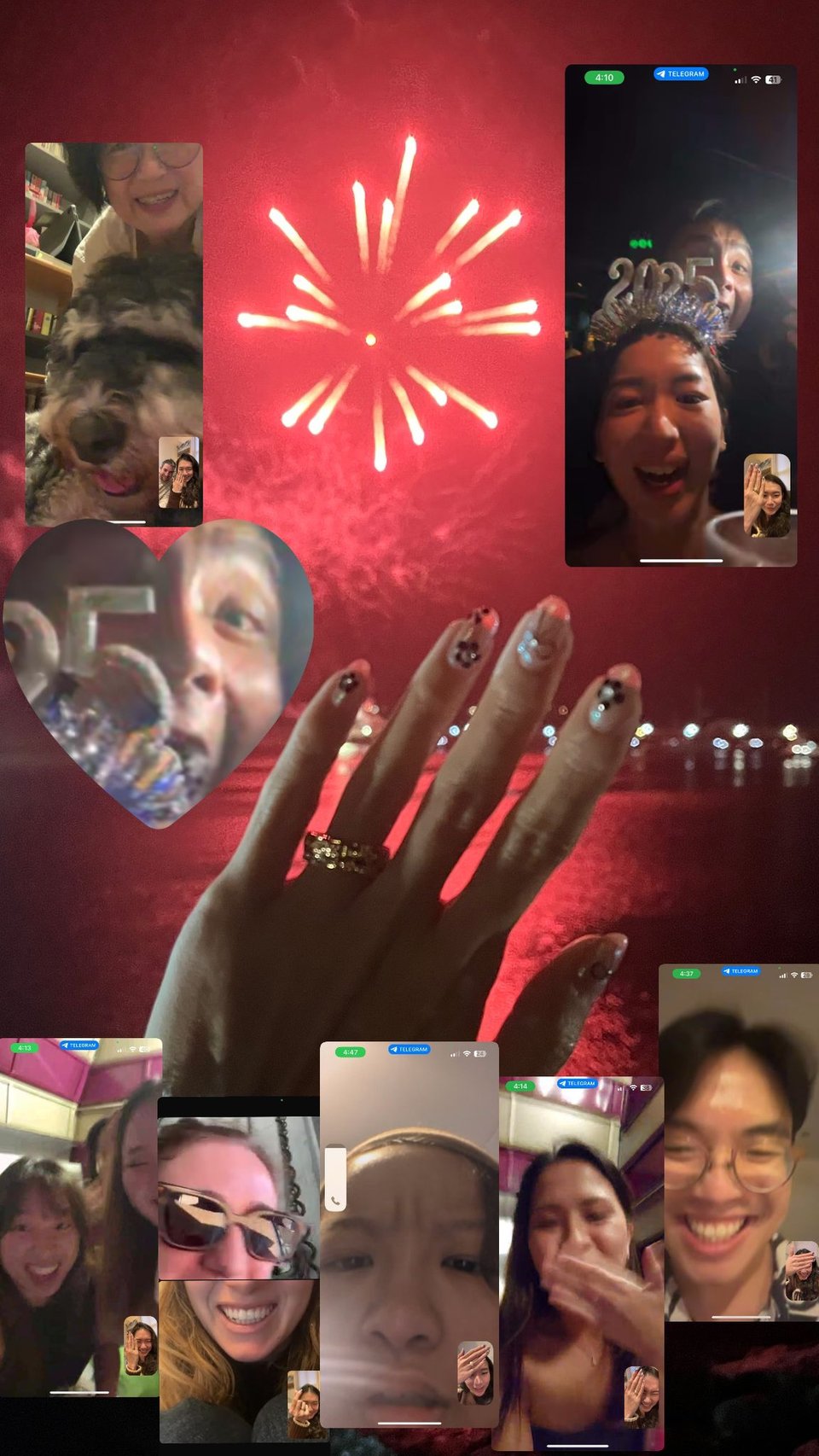
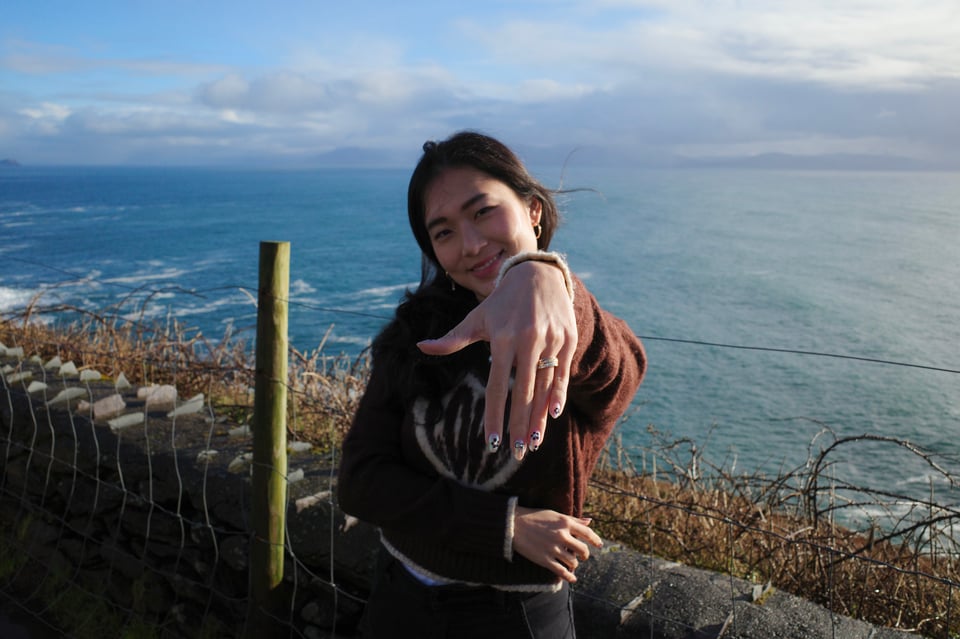
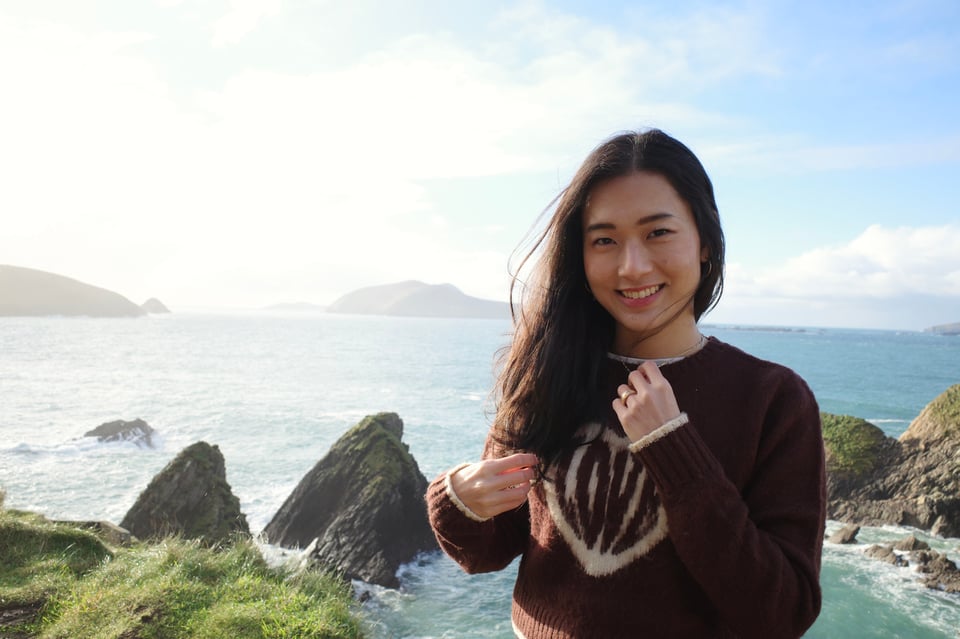
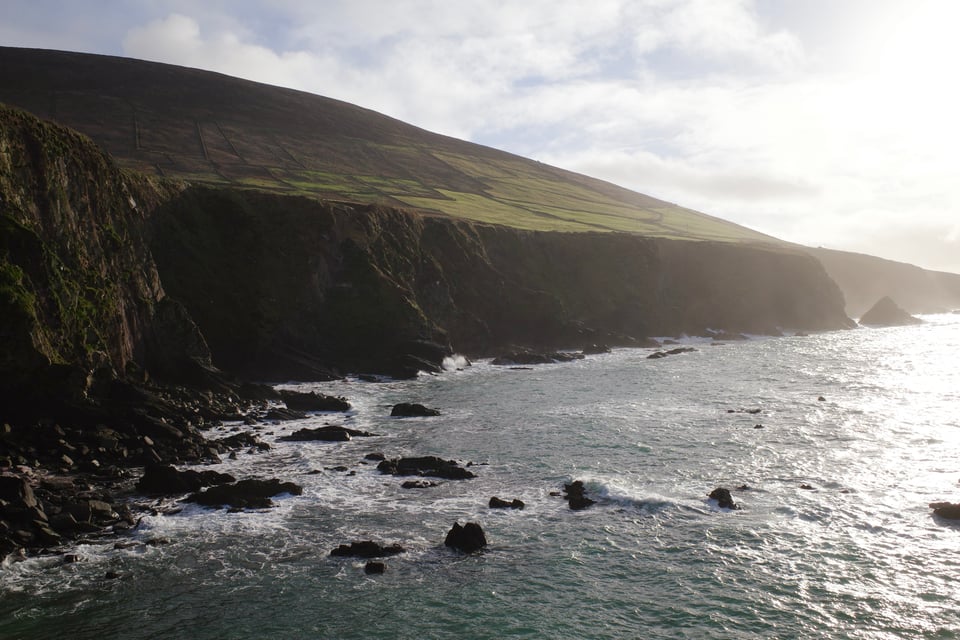
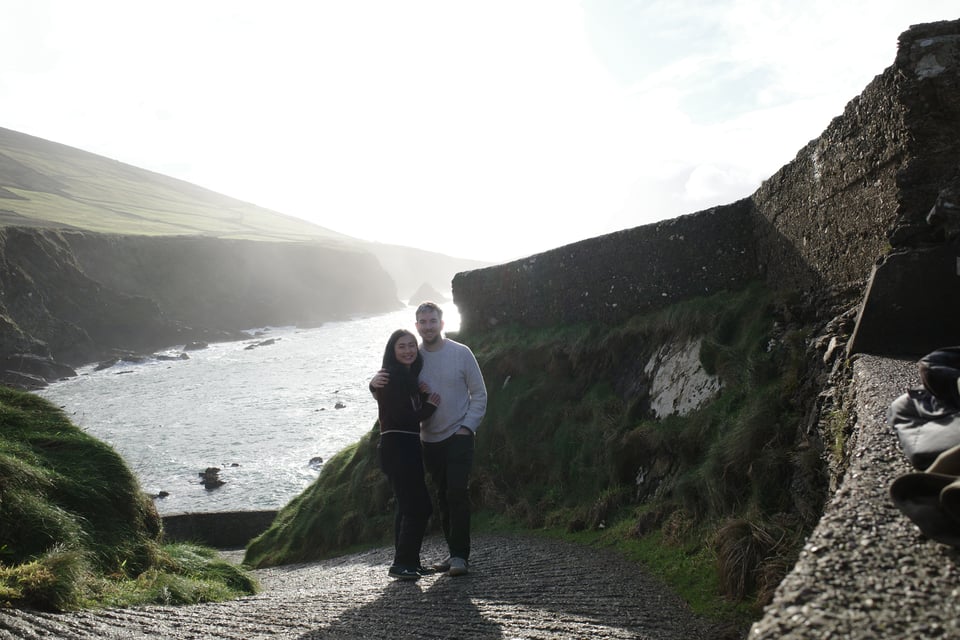
In the words of Lana Del Rey in the unimpeachable love song, “Margaret”:
Maybe tomorrow, you'll know
Maybe tomorrow, you'll know
Maybe tomorrow, you'll know
I mean, join the party
By the way
The party is July 2026
Alright, let's waltz this out…